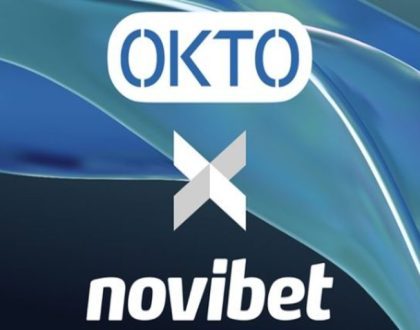Leveraging Licenses for Marketing Impact

Over the years, companies have discovered the powerful marketing potential that comes with leveraging licenses. Licensing agreements provide businesses with the opportunity to align themselves with well-known brands, characters, or icons that have already captured the hearts of consumers. By strategically selecting the right license and incorporating it into their marketing campaigns, companies can boost brand visibility, attract new customers, and ultimately increase sales.
Understanding Licensing
Before delving into how licenses can be leveraged for marketing impact, it is crucial to understand the concept of licensing. In the business world, a license refers to the permission granted by a licensor to a licensee to use their intellectual property, such as trademarks, patents, or copyrights, in exchange for payment. This agreement outlines the rights and responsibilities of both parties, including the scope of usage, duration, and any limitations.
Definition and Types of Licenses
One common type of license is a trademark license, which allows a licensee to use the licensor’s brand name, logo, or other branding elements in connection with the sale of products or services. Another type is a franchise license, where a licensee can use the business model, brand, and support system of the franchisor to operate their own business. Perceiving the distinctions between these types of licenses is crucial in determining the best strategy for leveraging them for marketing impact.
| Trademark License | Franchise License |
| Allows use of brand elements | Uses business model and brand |
| Limited scope of usage | Comprehensive support system |
| Duration specified in agreement | Operates as an independent business |
| May require royalty payments | Franchise fees may apply |
| Can enhance brand visibility | Provides established brand recognition |
The Significance of Licensing in Branding
Branding plays a crucial role in the success of any business. By licensing their brand to third parties, companies can extend their brand reach and generate additional revenue streams. Additionally, licensing allows brands to capitalize on the popularity and credibility of their trademarks by associating them with products or services outside their core offerings. This can help enhance brand loyalty and create new touchpoints with consumers in different markets.
With strategic licensing agreements, brands can expand their presence in various industries and reach a broader audience. By partnering with licensees who share similar values and target demographics, companies can leverage their brand equity to drive sales and strengthen brand positioning. Licensing also offers a cost-effective way to test new markets and product categories without significant investments in manufacturing or distribution.
Strategic Considerations for Licensing
Identifying Licensing Opportunities
On the journey to leverage licenses for marketing impact, it is crucial to first identify the right licensing opportunities for your brand. This involves researching and understanding your target market, analyzing industry trends, and evaluating potential partnerships that align with your brand values and business objectives. By identifying licensing opportunities that resonate with your target audience and complement your brand offerings, you can create mutually beneficial collaborations that drive brand awareness and consumer engagement.
Aligning Licensing with Brand Identity
Strategic alignment of licensing agreements with your brand identity is crucial for maximizing marketing impact. By selecting license partners that share your brand values and represent a lifestyle or image that resonates with your target audience, you can create authentic and compelling brand experiences. This alignment reinforces your brand’s positioning in the market and enhances consumer perception, leading to increased brand loyalty and affinity.
Strategic considerations for Aligning Licensing with Brand Identity also involve evaluating the reputation and credibility of potential license partners. Partnering with entities that uphold similar standards and values will help maintain the integrity of your brand and build trust with consumers.
This strategic approach to licensing not only enhances brand visibility and consumer engagement but also establishes long-term relationships that can drive sustained business growth.
Licensing Agreements
Once again, a crucial aspect of leveraging licenses for marketing impact lies in the effective utilization of licensing agreements. These documents serve as the foundation for the relationship between the licensor and licensee, outlining the terms and conditions under which the brand or intellectual property can be used. Understanding the key components of a licensing contract is vital for ensuring a successful and mutually beneficial partnership.
Key Components of a Licensing Contract
Any licensing contract should clearly define the scope of the license, including the specific rights granted to the licensee. It should also outline the duration of the agreement, detailing the start and end dates of the licensing period. Additionally, the contract should specify any financial terms, such as royalty rates or upfront fees, as well as provisions for quality control to maintain the integrity of the licensed brand.
Negotiating Terms and Protecting Interests
One important aspect of negotiating terms and protecting interests in a licensing agreement is conducting thorough due diligence on both parties involved. This includes researching the reputation and financial stability of the potential licensee, as well as ensuring that the licensor has the legal authority to grant the license. By carefully reviewing all terms and conditions, both parties can protect their interests and lay the groundwork for a successful partnership.
Components such as royalty rates, territorial restrictions, and termination clauses can significantly impact the success of a licensing agreement. Negotiating these terms effectively and protecting the interests of both parties is vital for maximizing the marketing impact of the partnership. Strong communication and a clear understanding of each party’s rights and responsibilities are key to ensuring a mutually beneficial relationship.
Implementing Licensing in Marketing
Many companies are exploring the benefits of leveraging licensing in their marketing strategies. By partnering with established brands or characters, businesses can tap into existing fan bases and improve their reach. Implementing licensing in marketing requires a strategic approach to ensure effective use of the license and maximize its impact on the target audience.
Integrating Licenses into Marketing Campaigns
To successfully integrate licenses into marketing campaigns, businesses must first identify the right properties that align with their brand values and resonate with their target market. This involves conducting thorough research and understanding the preferences of the audience. Once the right license is chosen, it is crucial to seamlessly incorporate it into various marketing materials such as advertisements, promotions, and packaging. By leveraging the power of a popular license, companies can enhance their brand image, drive customer engagement, and differentiate themselves from competitors.
Leveraging Digital Platforms for Licensed Products
To capitalize on the growing popularity of digital platforms, businesses can leverage licensed products to reach a wider audience online. By partnering with digital marketplaces or influencers, companies can showcase their licensed products to a large number of potential customers. This approach allows businesses to tap into the online community and create buzz around their products, ultimately driving sales and increasing brand visibility.
Licenses can be powerful assets for businesses looking to enhance their marketing efforts. By strategically choosing the right licenses and integrating them into marketing campaigns effectively, companies can drive consumer engagement and achieve their marketing goals. When done correctly, licensing can help brands stand out in a crowded marketplace and create lasting connections with their target audience.
Measuring the Impact of Licensing
Keep in mind that leveraging licenses for marketing impact requires a comprehensive understanding of how to measure success. This involves tracking key metrics, analyzing data, and constantly evaluating the effectiveness of your licensing strategies. By measuring the impact of licensing, you can make informed decisions, optimize your campaigns, and ultimately drive greater results.
Metrics for Evaluating Licensing Success
Success: Metrics for evaluating licensing success can vary depending on the goals of your marketing campaigns. Some key metrics to consider include brand awareness, customer engagement, sales revenue, and return on investment (ROI). By tracking these metrics over time, you can determine the effectiveness of your licensing partnerships and make adjustments as needed.
Case Studies of Licensing Excellence
One: In terms of licensing excellence, real-world case studies provide valuable insights into successful strategies and outcomes. Here are some examples of companies that have excelled in leveraging licenses for marketing impact:
- Company A: Increased brand awareness by 30% through strategic licensing partnerships
- Company B: Achieved a 20% boost in sales revenue by expanding into new markets with licensed products
- Company C: Improved customer engagement by 25% through co-branded marketing campaigns
This demonstrates the power of licensing in driving tangible results for businesses. By studying these case studies, marketers can gain valuable insights into best practices, strategies, and potential pitfalls to avoid when leveraging licenses for marketing impact. Success in licensing requires a strategic approach, data-driven decision-making, and a commitment to continuously evaluating and optimizing your partnerships.
Challenges and Risks in Licensing
Common Pitfalls and How to Avoid Them
All companies face challenges when leveraging licenses for marketing impact. One common pitfall is not thoroughly understanding the terms and conditions of the licensing agreement. This can lead to unintended breaches and legal consequences. Another common mistake is overestimating the impact of a licensed property on target consumers, leading to a mismatch between the brand and the licensed property. To avoid these pitfalls, it is crucial to conduct thorough research, seek legal advice, and ensure alignment between the brand and the licensed property.
Legal Considerations and Compliance
When considering licensing, legal considerations and compliance are paramount. Intellectual property rights, including trademarks, copyrights, and patents, must be carefully examined to prevent any infringement issues. The licensing agreement should clearly define the rights and obligations of both parties, ensuring compliance with applicable laws and regulations. It is vital to have legal counsel review the agreement to safeguard the interests of all parties involved.
Plus, companies should regularly review and update their licensing agreements to adapt to changing business environments and legal requirements. Staying informed and proactive in addressing legal considerations will help mitigate risks and ensure a successful marketing impact through licensing partnerships.
Future Trends in Licensing and Marketing
Predicting Changes in the Licensing Landscape
Unlike the traditional licensing landscape, the future holds a myriad of changes that are set to reshape the way brands approach licensing strategies. One of the key trends expected is the increased focus on digital licensing as more brands embrace online platforms for reaching consumers. This shift towards digital licensing is fueled by the growing digital economy and the need for brands to engage with consumers in innovative ways.
Adapting to Emerging Technologies and Consumer Behaviors
Licensing professionals must stay ahead of the game by adapting to the rapid advancements in technology and evolving consumer behaviors. This means exploring new avenues such as virtual and augmented reality experiences for licensing products, as well as incorporating artificial intelligence and machine learning into marketing strategies. Brands that harness these emerging technologies will be better positioned to capitalize on changing consumer preferences and create more personalized and engaging experiences.
Behaviors that drive consumer purchasing decisions are constantly evolving, influenced by factors such as social media trends, sustainability concerns, and a desire for authenticity. Brands need to stay attuned to these shifting behaviors and align their licensing and marketing efforts accordingly to stay relevant and competitive in the ever-changing market.
Ultimately, Leveraging Licenses for Marketing Impact can be a highly effective strategy for businesses looking to increase brand visibility, attract new customers, and differentiate themselves in a competitive market. By partnering with well-known properties or individuals through licensing agreements, companies can tap into existing fan bases and leverage the trust and credibility associated with those brands or personalities. This can help businesses elevate their marketing efforts and create more impactful campaigns that resonate with consumers on a deeper level.
Furthermore, licensing can also be a cost-effective way to access premium content, intellectual property, or endorsements that would otherwise be out of reach for many businesses. By strategically selecting the right licenses and integrating them into their marketing initiatives, companies can unlock new opportunities for growth and cultivate a stronger connection with their target audience. All things considered, leveraging licenses for marketing impact is a valuable tool that can help businesses achieve their goals and stay ahead of the competition in today’s dynamic marketplace.
FAQs
What is licensing in the business world?
Licensing in the business world refers to the permission granted by a licensor to a licensee to use their intellectual property, such as trademarks, patents, or copyrights, in exchange for payment. This agreement outlines the rights and responsibilities of both parties, including the scope of usage, duration, and any limitations.
How can companies benefit from licensing agreements?
Companies can benefit from licensing agreements by boosting brand visibility, attracting new customers, and increasing sales. Licensing allows brands to extend their reach, generate additional revenue streams, and capitalize on the popularity and credibility of well-known trademarks or properties.
What are the common types of licenses used in marketing?
The common types of licenses used in marketing include trademark licenses, which allow the use of brand elements like logos, and franchise licenses, which enable the use of a business model and brand support system. Each type has specific terms regarding usage, duration, and financial arrangements.
What are the key components of a licensing contract?
A licensing contract should clearly define the scope of the license, duration of the agreement, financial terms (such as royalty rates or fees), and quality control provisions to maintain brand integrity. These components ensure a successful and mutually beneficial partnership.
What are some challenges associated with licensing agreements?
Challenges include not thoroughly understanding the licensing terms, overestimating the impact of a licensed property, and legal issues related to intellectual property rights. To mitigate these risks, it is crucial to conduct thorough research, seek legal advice, and ensure alignment between the brand and the licensed property.
Recommended Posts

Gamification – Beyond the Casino
July 5, 2024

The Path to Payment Efficiency in iGaming
July 5, 2024

Novibet & OKTO: iGaming Payments with NoviCASH
July 4, 2024




